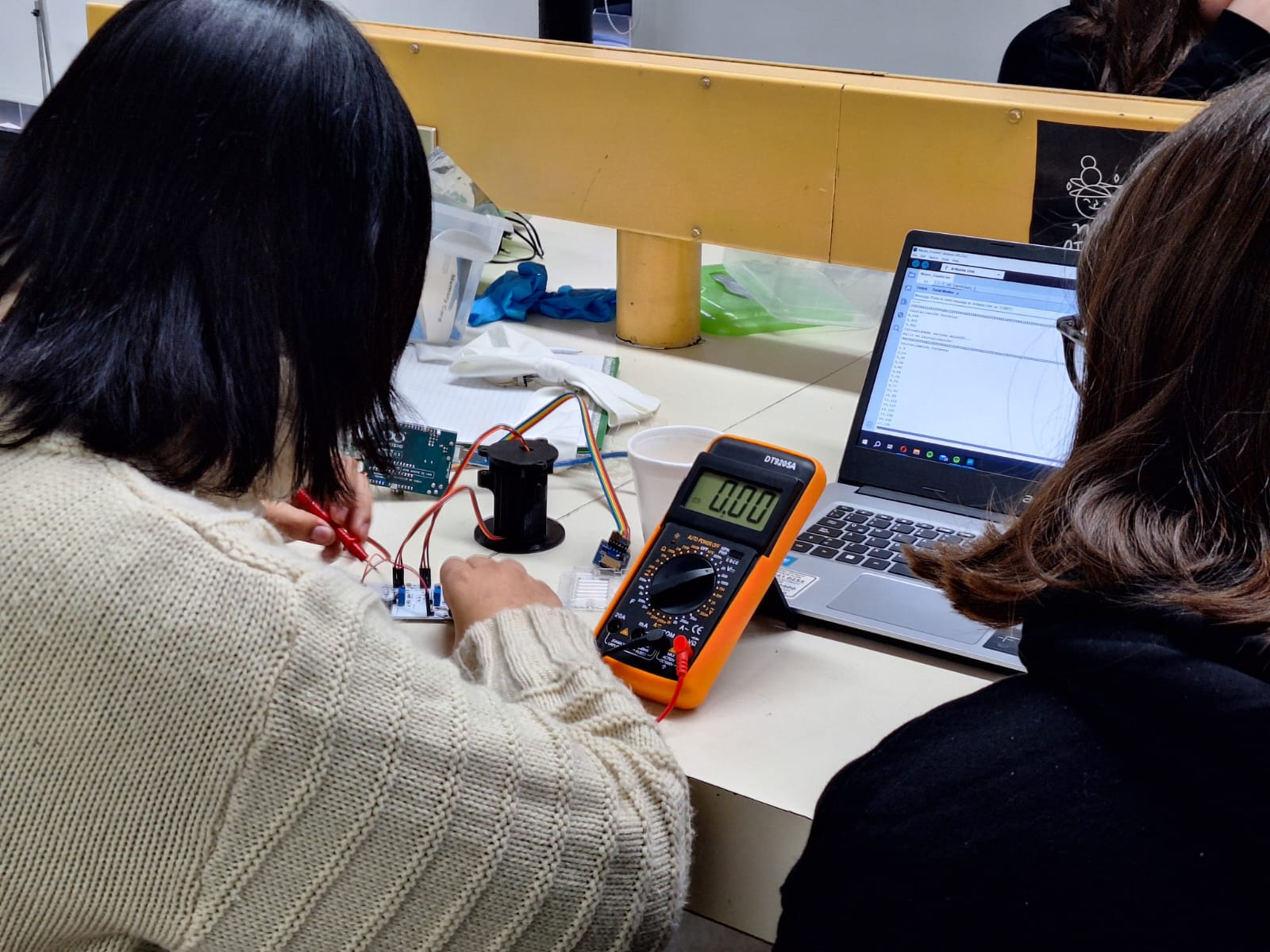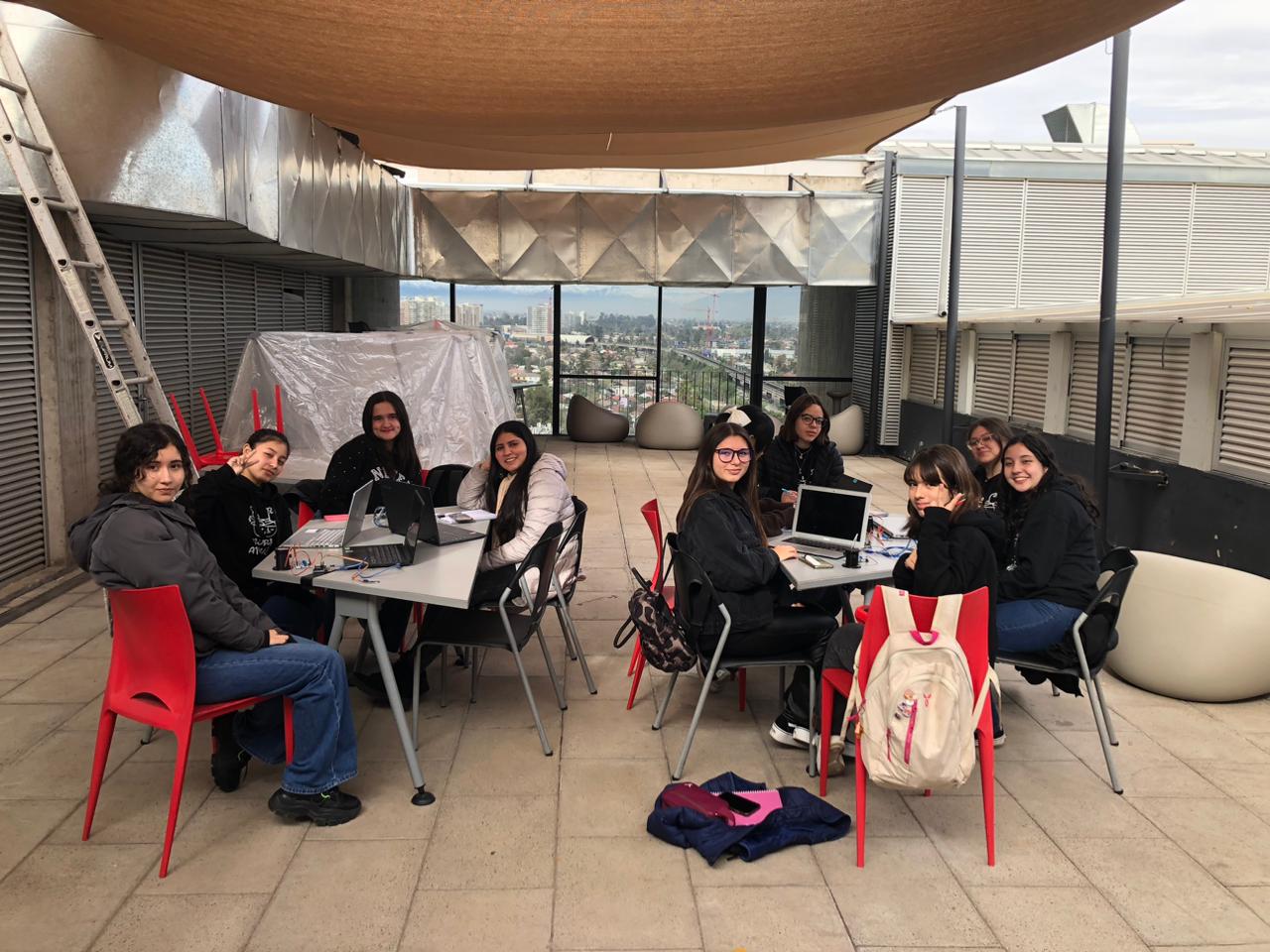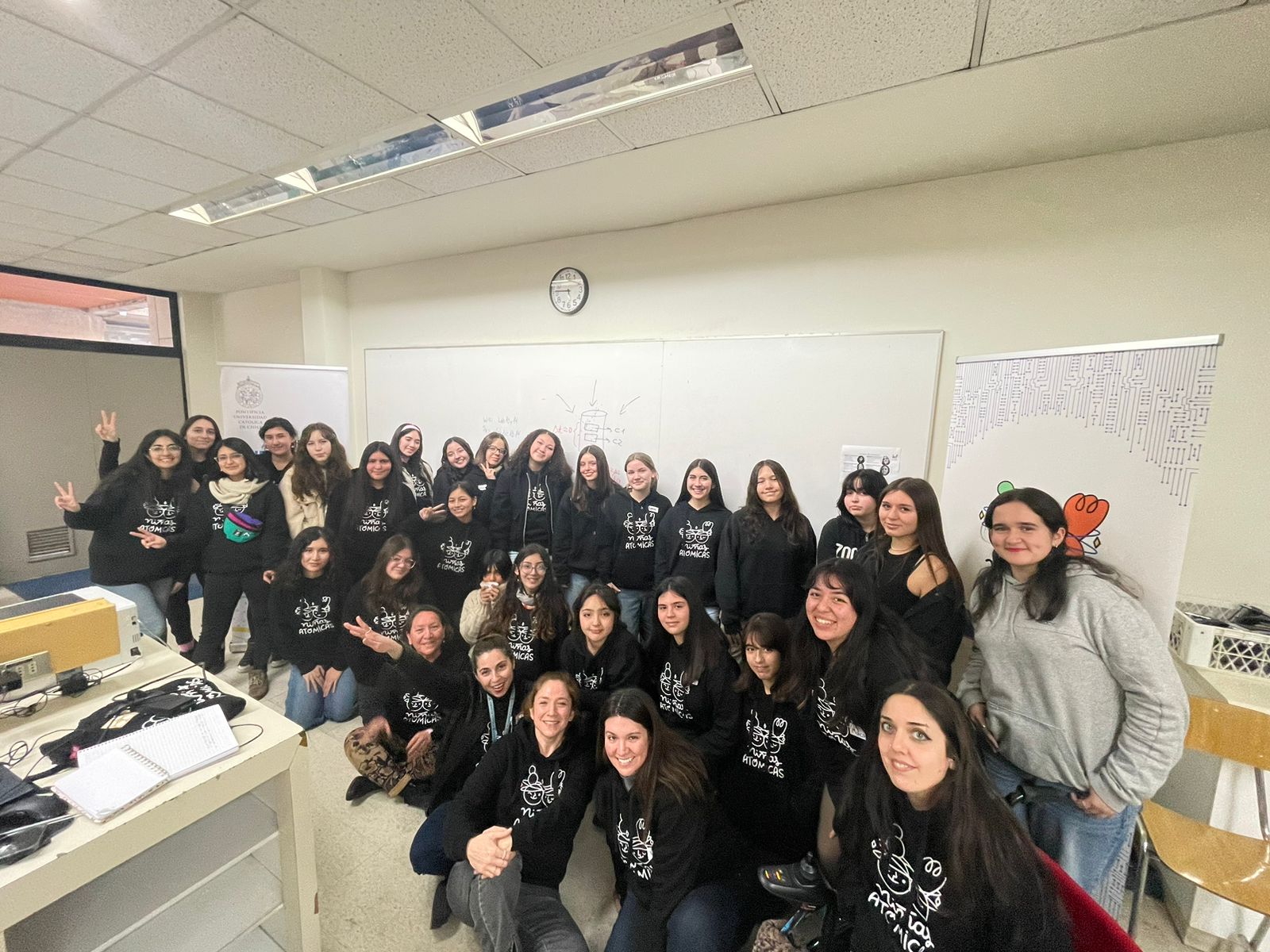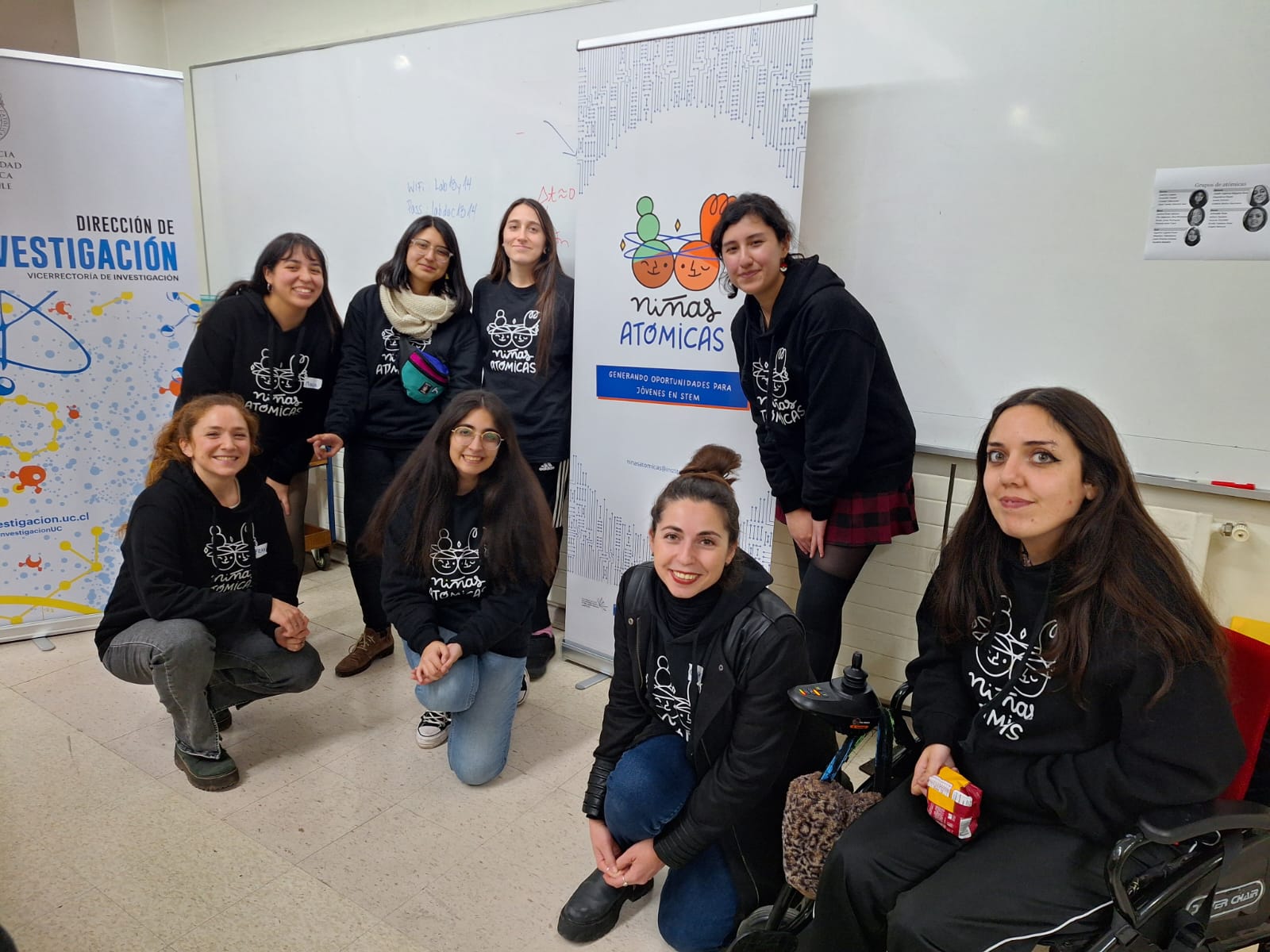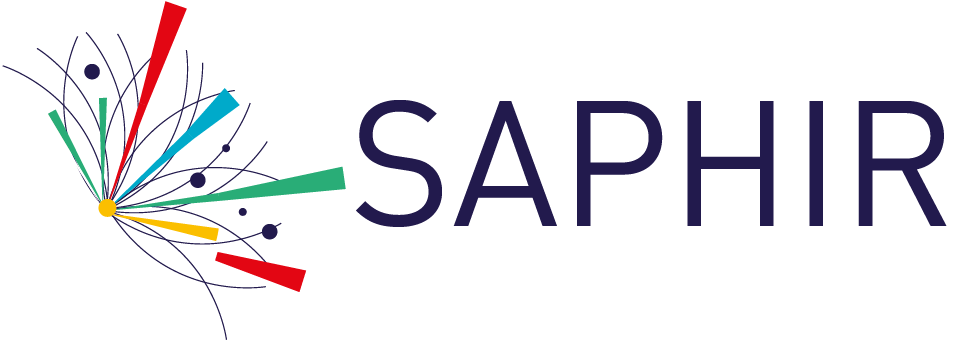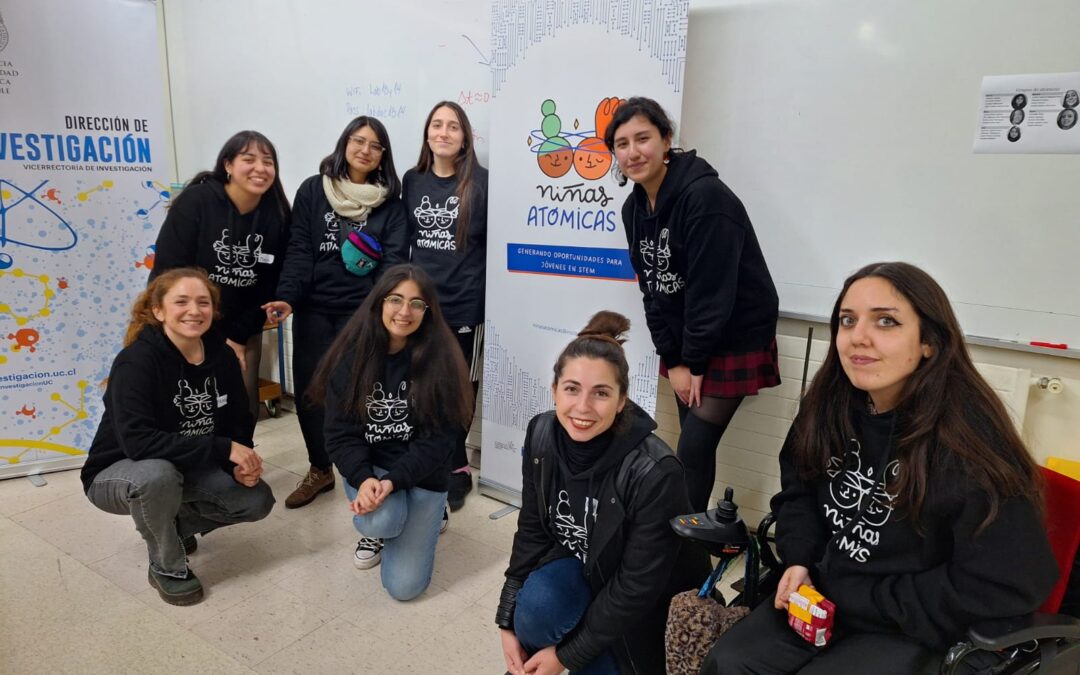The third edition of the "Atomic Girls" workshop was held with great success, organized by the Millennium Institute SAPHIR and the Pontificia Universidad Catolica de Chile.
With hybrid classes and a face-to-face session held at the Faculty of Physics of the Catholic University of Chile, bringing together 21 young adolescents from the first and second year of high school from all over the country, this event, which has become an annual reference for the promotion of science among girls, had participants from various regions, including Chillán, Curicó, Arica, Copiapó, Iquique, San Pedro de la Paz, Aysén and Coyhaique.
This year, the activity was supported by the SAPHIR Millennium Institute, the Millennium Nucleus for the Study of the Development of Early Mathematical Abilities (MEMAT), and the UC Vice Rector's Office for Research, which allowed for an enriching and high quality experience for the young participants.
Face-to-face activity: assembly of a muon detector
During the inauguration of the workshop, prominent UC authorities were present to give their support to this important initiative. Francisca Garay and Giovanna Cottin, the creators of the workshop, gave an emotional speech in which they highlighted the objectives and future challenges of "Niñas Atómicas". They stressed the importance of democratizing science and facilitating access to activities that allow girls, from an early age, to explore their abilities and make informed decisions about their vocational future.
The dynamic lasted two days in which the girls, together with a group of tutors, who are undergraduate and graduate students in physics and related science careers, learned about the operation of a device that allowed them to detect muons -massive elementary particle- and apply this data to generate an analysis of variables, using the Python programming language.
Although there were 21 participants, the workshop received a high number of applications from adolescents from different corners of Chile, which is synonymous with the positive impact and national scope of this activity. The geographic diversity of the participants not only enriched the learning experience, but also fostered a sense of community and collaboration among the young scientists in training.
We hope that "Niñas Atómicas" will continue to consolidate as a space to inspire the next generations of women scientists in Chile.
